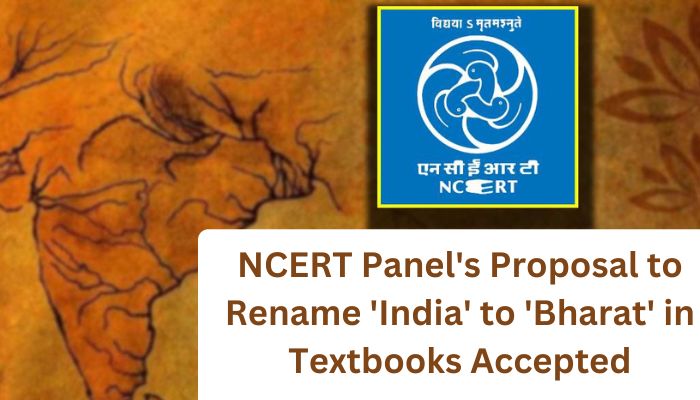A proposal set forth by a committee of the National Council of Educational Research and Training (NCERT) to rename the upcoming set of textbooks from ‘India’ to ‘Bharat’ has been unanimously accepted by its members. This committee is among the 25 panels responsible for altering or revising the content of NCERT books.
It’s worth noting that while this proposal has gained acceptance from a smaller committee, it is pending final approval. The proposal has now been forwarded to NCERT in Delhi for further evaluation.
IC Issac, the chairman of the panel, indicated that this proposal was introduced several months ago and has now been embraced.
The NCERT panel’s suggestion comes in the context of ongoing discussions about potentially renaming the country ‘Bharat’. This debate began earlier in the year when the Center sent G20 dinner invitations on behalf of President Droupadi Murmu under the title “President of Bharat,” as opposed to “President of India,” sparking a political dispute.
Article 1(1) of the Indian Constitution specifies the country’s name as “India, that is Bharat shall be a Union of States.”
In September, during the G20 Leaders Summit at the Bharat Mandapam in Delhi’s Pragati Maidan, Prime Minister Narendra Modi’s nameplate displayed ‘Bharat’ as he addressed the gathering.
In addition to the proposed name change, the NCERT committee has made other recommendations, including highlighting “Hindu victories” in textbooks. They have also suggested the introduction of ‘classical history’ in place of ‘ancient history’ within the textbooks.
IC Issac mentioned that history will no longer be classified into ancient, medieval, and modern, as previously done by the British, which portrayed India as being in darkness and unaware of scientific progress and knowledge.
Moreover, the committee has proposed incorporating the Indian Knowledge System (IKS) into the curriculum for all subjects, emphasizing a more holistic and culturally rooted education.

